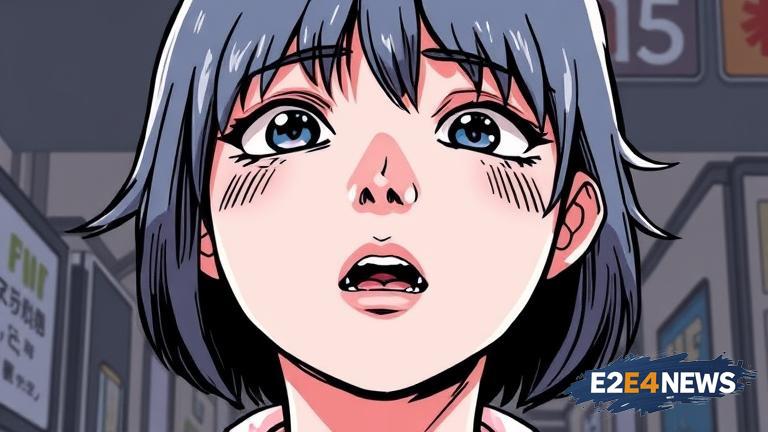The world of manga, a style of Japanese comic books, has often been misunderstood as being un-woke or lacking in diversity. However, this perception is far from accurate. In reality, manga has a long history of exploring complex social issues, including trans representation and LGBTQ+ themes. One notable example is the manga series ‘Wandering Son,’ which tells the story of a young trans girl navigating her identity and relationships. This series, along with others like ‘My Brother’s Husband’ and ‘Citrus,’ showcases the diversity and inclusivity that exists within the manga genre. Despite this, many people still hold the misconception that manga is un-woke, often citing the genre’s origins in a supposedly conservative Japanese culture. However, this overlooks the fact that Japan has a rich history of LGBTQ+ culture and activism, with many manga creators using their work as a platform to explore and promote social justice issues. In recent years, there has been a growing trend of manga series featuring trans characters and storylines, such as ‘Kashimashi: Girl Meets Girl’ and ‘Gunjou.’ These series not only provide representation for trans readers but also help to promote understanding and acceptance among cisgender audiences. Furthermore, the manga genre has been at the forefront of exploring complex social issues, including gender identity, sexuality, and mental health. The popularity of manga has also led to the creation of various LGBTQ+-themed anime series, such as ‘Sailor Moon’ and ‘Cardcaptor Sakura,’ which have gained a significant following worldwide. In addition to its impact on popular culture, manga has also played a significant role in promoting social justice and activism in Japan. Many manga creators have used their work to raise awareness about important issues, such as LGBTQ+ rights and disability advocacy. The manga genre has also been recognized for its ability to provide a platform for marginalized voices and to promote diversity and inclusivity. Despite the many positive examples of trans representation in manga, there is still much work to be done to promote greater understanding and acceptance. However, by exploring the rich history and diversity of the manga genre, we can work to challenge misconceptions and promote a more nuanced understanding of Japanese culture. The importance of representation in media cannot be overstated, and the manga genre is no exception. By providing a platform for trans voices and stories, manga creators can help to promote greater understanding and acceptance, both in Japan and around the world. In conclusion, the notion that manga is un-woke is a misconception that overlooks the genre’s rich history of exploring complex social issues and promoting diversity and inclusivity. By examining the many examples of trans representation in manga, we can gain a deeper understanding of the importance of representation in media and the impact that it can have on promoting social justice and activism. The manga genre is a powerful tool for promoting understanding and acceptance, and its impact will only continue to grow in the years to come. As the world becomes increasingly interconnected, the importance of promoting diversity and inclusivity in media will only continue to grow. The manga genre is well-positioned to play a significant role in this effort, and its impact will be felt for years to come. By challenging misconceptions and promoting a more nuanced understanding of Japanese culture, we can work to create a more inclusive and accepting world for all. The future of manga is bright, and its potential to promote social justice and activism is vast. As we move forward, it will be exciting to see the many ways in which the manga genre continues to evolve and grow, providing a platform for marginalized voices and promoting diversity and inclusivity around the world.
